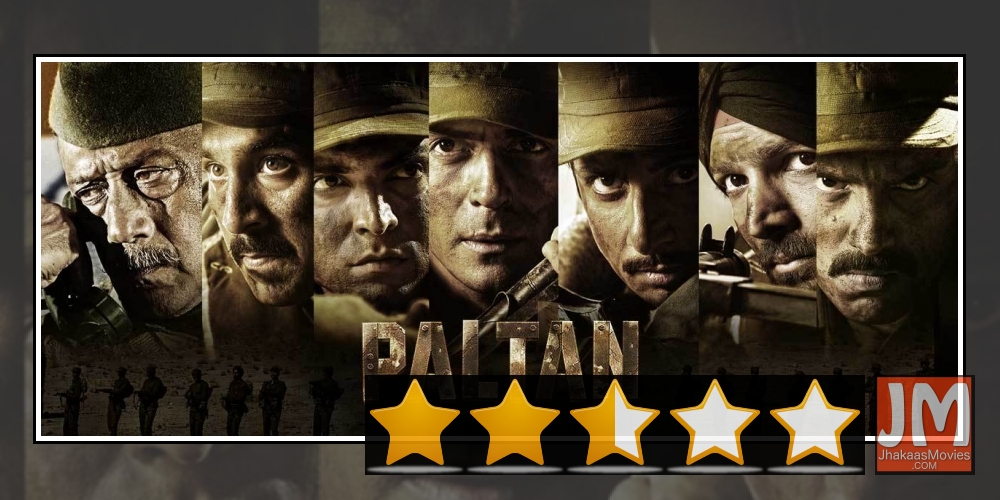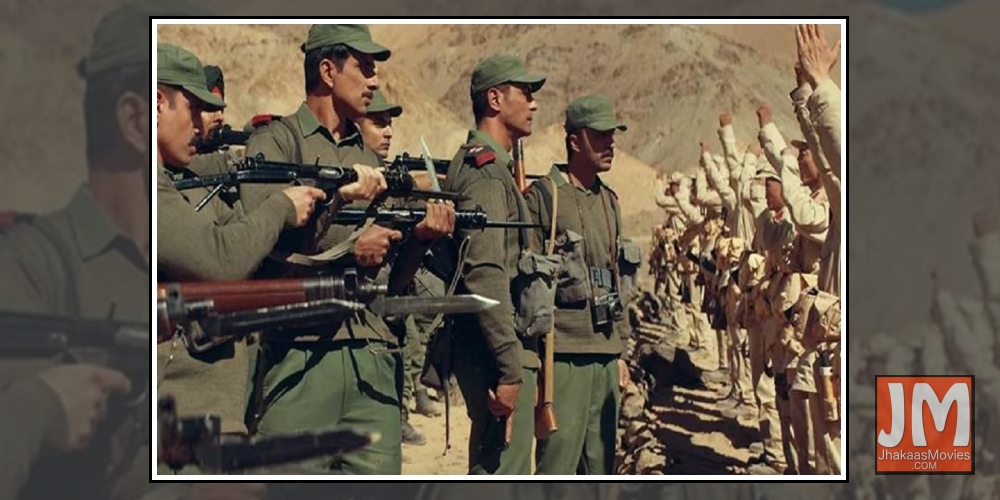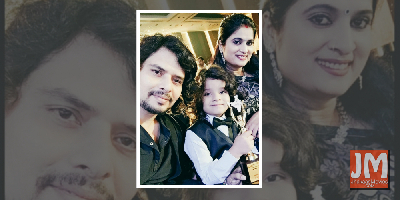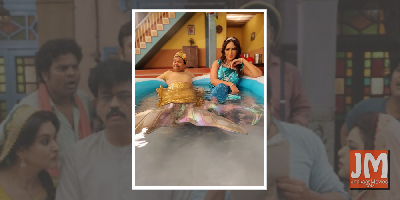 Aan Tiwari honoured with Best Child Actor award for Baal Shiv
Aan Tiwari honoured with Best Child Actor award for Baal Shiv Ghategi rahasymayi ghatnaye!
Ghategi rahasymayi ghatnaye! Amazon Prime Video unveils the 2021 Festive Line-up; brings a heady mix of Indian and International titles on the service
Amazon Prime Video unveils the 2021 Festive Line-up; brings a heady mix of Indian and International titles on the service Release: Music video of, Yeh Haalaath, from Mumbai Diaries 26-11
Release: Music video of, Yeh Haalaath, from Mumbai Diaries 26-11 Bhumi Pednekar feels she shares feel-good value with Akshay Kumar on screen
Bhumi Pednekar feels she shares feel-good value with Akshay Kumar on screen
Paltan Movie Review: JP Dutta's Long And Non Engaging War Drama.

The film begins with the declaration that Paltan — starring a battalion of waning-but-winsome talents such as Arjun Rampal, Sonu Sood, Harshvardhan Rane, Gurmeet Choudhry, Luv Sinha, and Siddhant Kapoor — is based on a “skirmish” that played out between rival nations India and China in 1967. The episode hasn’t been documented in our history syllabi, but Dutta is eager to add a chapter through cinema.
In Paltan, the morale and the mood among the scrupulous Indian soldiers stationed at the border in Nathu La in Sikkim is grim and belligerent. They are still balking from their humiliating defeat against the Chinese troops in 1962 and baying for their enemies’ blood.

The plot isn’t particularly engaging. The conflict, which is an obscure-but-remarkable victory by the Indian army, doesn’t have any sense of urgency. There’s also no clarity in why a battle, that saw hundreds of lives being sacrificed, was triggered. Instead of focusing on context and giving us a wholesome perspective, precious minutes are wasted on giving us an insight into a soldier’s love lives. An emotionally-charged song featuring soldiers reminiscing about their personal lives in a war drama jarred. The Chinese counterpart actor fails to deliver a powerful performance. The style of story-telling is the same as that of the 1997 film Border, but we have moved on and are living in 2018.
Shot in real locations, Paltan recreates the 1965 setting, but not the corresponding tension. Director JP Dutta who is also the screenplay and story writer stays quite rooted to his original style of storytelling. But he uses repetitive conflicts and half-baked backstories that add more to the runtime than the narrative. The bromance between the jawans lacks emotional depth and conviction. All of this collectively blunts much of the desired impact of what could have been a riveting war film. Director JP Dutta fires all his ammo in a rousing climax for a bitter sweet victory.








